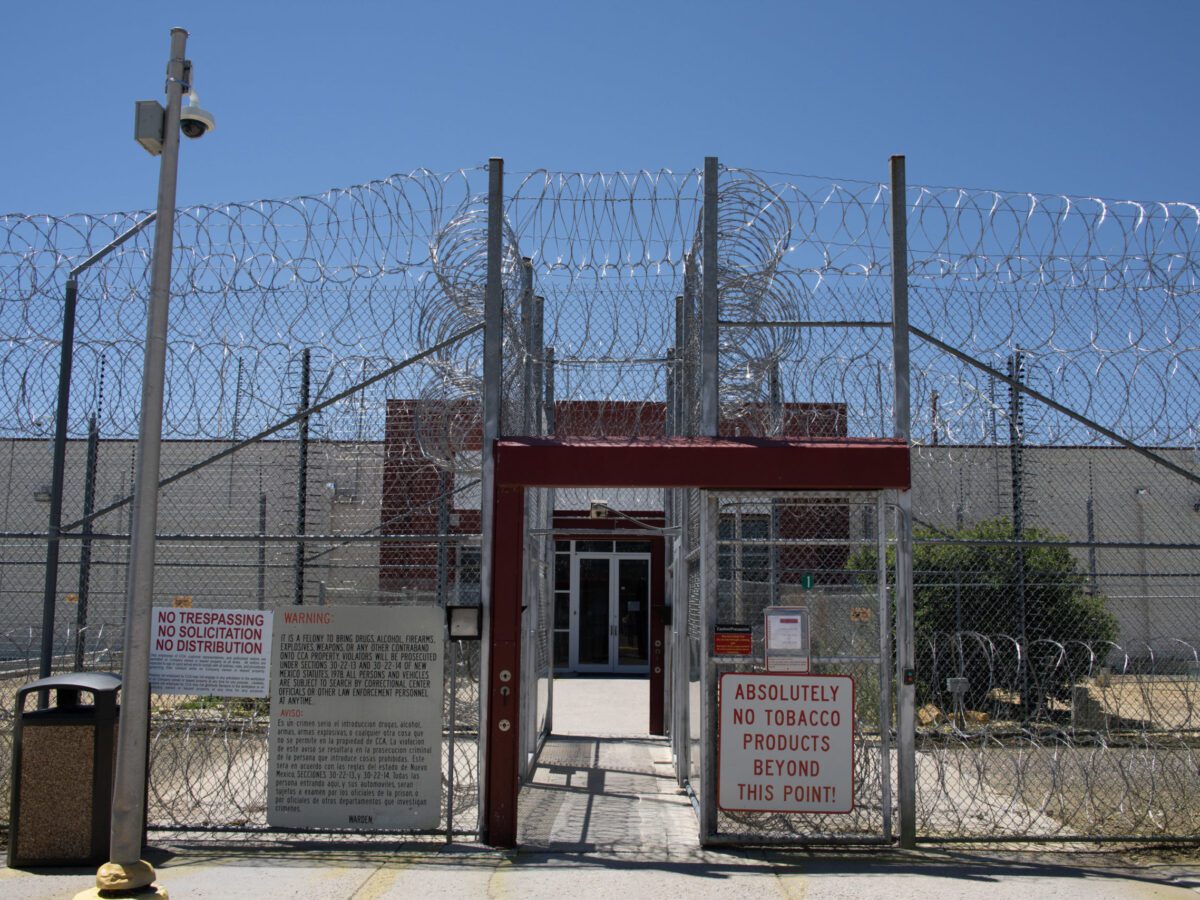The companies that manage the three New Mexico immigrant detention centers are pushing back against a new report that recommends closing those facilities due to concerns over the alleged mistreatment of detainees and unsafe conditions.
Last week, the New Mexico Advisory Committee to the U.S. Commission on Civil Rights released a report entitled “Civil Rights in Immigrant Detention Centers in New Mexico,” which stated that in July the committee’s nine members voted 7-2 to recommend closing the three immigrant detention centers following an inquiry initiated in October. Those facilities are the Cibola County Correctional Center in Milan, the Otero County Processing Center in Chaparral and the Torrance County Detention Facility in Estancia.
The report details five major areas that it says guided the committee’s decisions: limited access to legal representation and rights education, shortcomings in credible fear interviews for asylum seekers, concerns about physical conditions and safety at the facilities, a contracting structure that the report describes as undermining oversight, and insufficient oversight and transparency.
According to the report, Christopher Saucedo, the advisory committee’s chair, and Douglas Turner, the committee’s vice chair, voted against the recommendations.
Representatives for CoreCivic, a Tennessee-based company that provides detention management services and operates the facilities located in Cibola and Torrance counties, and Management & Training Corporation, which is based in Utah and manages the Otero County Processing Center, defended the records of their respective companies.
Emily Lawhead, communications director for Management & Training Corporation, said her company refutes the allegations made in the report.
“The report mischaracterizes the Otero County Processing Center (OCPC) and conflates allegations across multiple New Mexico facilities,” Lawhead said in an email to New Mexico Political Report.
She added that the Otero County Processing Center operates under the daily oversight of Immigration and Customs Enforcement (ICE), and is routinely inspected and audited using ICE’s Performance-based National Detention Standards. Lawhead said that the Management & Training Corporation “consistently meet and exceed required benchmarks.”
“The people in our care have on-site medical and mental-health services, confidential access to legal counsel, private spaces for credible-fear interviews with certified language interpretation, and multiple documented grievance avenues,” she said.
Lawhead added that the staff is provided robust training as part of the Prison Rape Elimination Act, has zero-tolerance policies and shares performance data with government partners.
“Safety, dignity and process guide our work every day, and we welcome transparent oversight and visits to our facility to see our operations firsthand,” Lawhead stated in the email.
Brian Todd, public affairs manager for CoreCivic, defended the company’s record. He cited CoreCivic’s 40 years of providing services to the federal government under presidential administrations of both parties, and the company’s human rights policy that outlines its commitment to detainee rights, including policies related to legal rights, access to medical care, and security.
“Our responsibility is to care for each person respectfully and humanely while they receive the legal due process they are entitled to,” he said. Detainees, Todd said, are provided with a high standard of care, including 24/7 medical care and three meals a day.
Todd also countered claims of a lack of transparency. He stated that CoreCivics’s facilities are routinely subjected to independent audits without prior notice. He added that facilities are frequently visited by immigration attorneys, community volunteers, elected officials and friends and families of detainees.
The recommendations in the report also called for an end to county-level pass-through contracts for immigrant detention, which have been used to set up the three immigrant detention centers in New Mexico. According to the report, under such agreements, a county acts as a pass-through entity to provide ICE detention capacity using private contractors.
Opponents of the agreements say they allow contractors an avenue to bypass competitive bidding and federal procurement rules.
“By circumventing the ordinary federal procurement process, there might be a decline in transparency and competition that could improve the conditions of the facilities,” the report stated.
For years, immigrant rights activists and some lawmakers have lobbied for passage of legislation that would prohibit local bodies — such as counties— from entering into such agreements and requiring the termination of any existing ones. Such legislation passed the New Mexico House earlier this year but did not make it to the Senate floor.
A spokesperson for Governor Michelle Lujan Grisham hinted earlier this year that the governor was considering a ban on federal detention centers in an agenda for the upcoming special legislative session scheduled in October. New Mexico Political Report has since reported that the governor’s office has opted to push the issue off until the regular January session.


Close those private prisons! Nobody should be making money off of human misery!